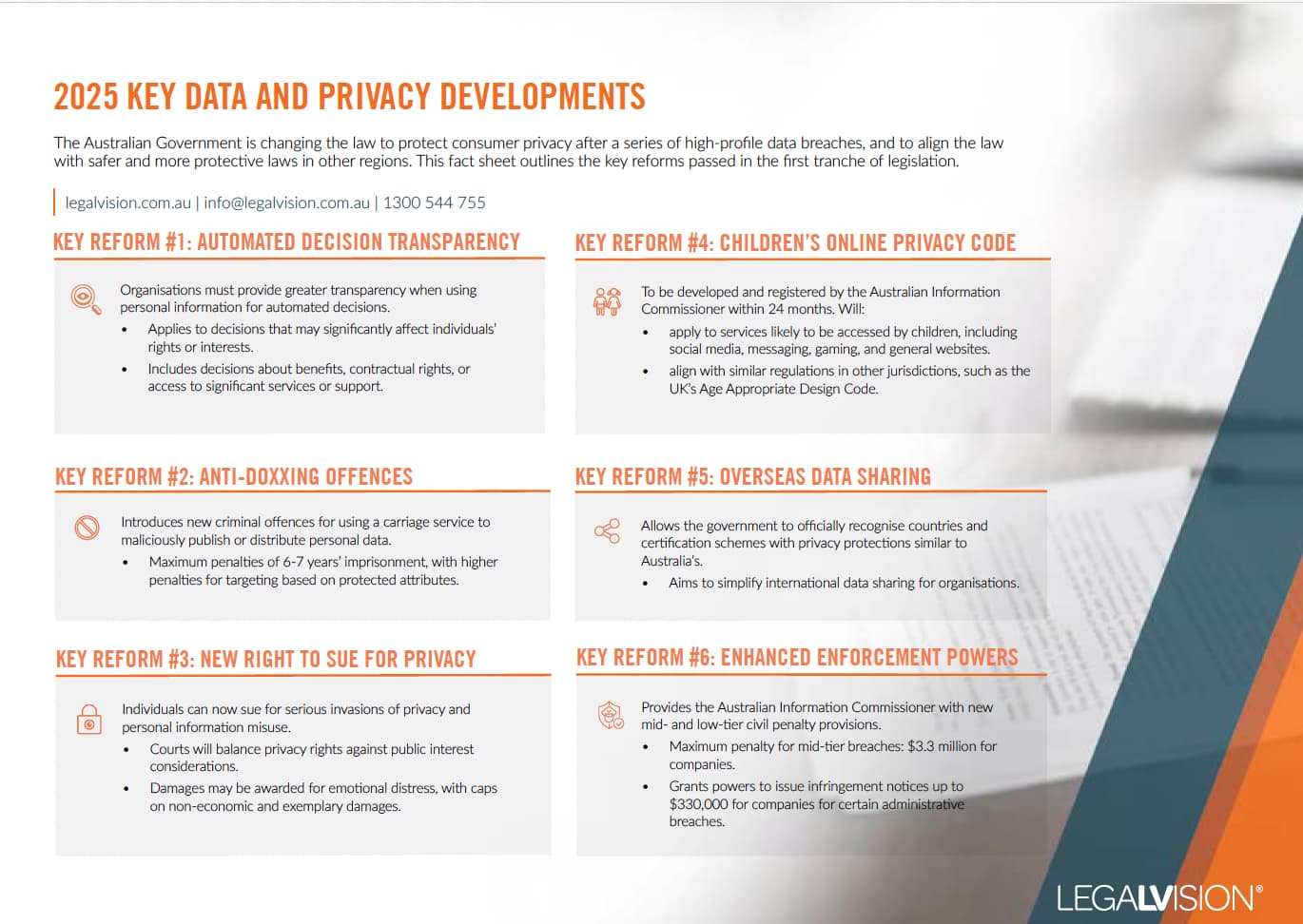In Short
- Employees posting frustrations online may not always be grounds for dismissal, but breaching confidentiality, policies, or contracts can justify action.
- A clear, enforced social media policy is essential to manage confidentiality, productivity, and employee conduct online.
- Serious misconduct via social media may allow for summary dismissal, but employers should seek legal advice first.
Tips for Businesses
Have a clear social media policy that sets expectations for online behaviour, confidentiality, and productivity. Provide training so employees understand both the risks and the rules. Enforce the policy consistently, and when problems arise, address them fairly and promptly to reduce the risk of legal disputes.
Table of Contents
- 1. Can Employees Vent Their Frustrations About Your Workplace on Social Media?
- 2. What Can I Do if an Employee Shares Confidential Information?
- 3. Is Ignorance of Technology An Excuse?
- 4. How Can I Prevent Issues With Productivity?
- 5. Does Misuse Amount to Serious Misconduct?
- Key Takeaways
- Frequently Asked Questions
The Fair Work Commission has dealt with several cases where employees have posted or tweeted inappropriate content in relation to their employment. While an employee’s inappropriate tweet might not give you immediate grounds to fire them, there are some steps you can take as an employer to minimise the risk of social media issues arising. This article will step through five common questions employers have in relation to social media issues that may arise and outlines some steps you can take to prevent these issues from occurring.
1. Can Employees Vent Their Frustrations About Your Workplace on Social Media?
If your employee simply vents their frustrations about your company on their social media without disclosing any of the company’s confidential information, this may not provide grounds for termination. Instead, you might consider alternative action. Firstly, you should hold a private meeting with them to discuss the issue. By better understanding the root of your employee’s frustrations, you might uncover other issues in the workplace you were not aware of.
In saying that, some employers have legally dismissed their employees for bringing their business into disrepute. This is mostly in the instance where their employment contracts require an employee to act in the business’ best interests and to refrain from taking action which would damage their employer’s reputation. You may be able to take disciplinary action against an employee who makes a complaint about work on social media if your employee:
- identifies themselves as an employee of your business in the social media post;
- makes the post visible during working hours;
- is trained in or aware of your business’ social media policy; and
- breaches a workplace policy or condition in their employment contract.
Therefore, it is essential to have an IT policy in place that governs the company’s expectations in so far as employee’s use of social media. These policies will often include a requirement for employees not to include their employment on their private social media accounts to ensure that the company is not associated with any personal activity.
2. What Can I Do if an Employee Shares Confidential Information?
It is all too easy to forget that a much wider audience can view online posts, even when an employee made the post in their personal capacity. If a disgruntled employee makes comments online about your workplace’s confidential practices or reveals information about clients, you are likely to have strong grounds for termination.
Any employment contract likely prohibits the disclosure of the company’s confidential information both during and after employment. However, this right is also protected under common law, and as such, even where your company does not have employment agreements in place, you will likely still have recourse against current and former employees with respect to the disclosure of confidential information on social media.
A social media policy can further clarify your expectations when it comes to your employees handling your business’ confidential information. A social media policy can regulate your employees’ use of social media since it can clarify what your employees can and cannot post online. Where there is specific confidential information that you want to protect, you can outline this in your social media policy as content your employees ‘cannot’ post on social media.

This fact sheet outlines the Australian Government’s strengthened consumer privacy laws in 2025 following major data breaches and their alignment with global standards.
3. Is Ignorance of Technology An Excuse?
Employees have previously argued that their ignorance of how social media operates led them to post to a public audience. As technology becomes increasingly accessible and employers begin educating employees on acceptable use, this defence is likely to disappear. Certainly, where employees are provided with a social media policy upon commencing employment, and the company holds a record of their acknowledgment of this policy, it will be a very difficult argument to make.
In this sense, it is important that you ensure your social media policies explicitly instruct employees on how to change their social media account’s privacy settings. Additionally, providing training that allows your employees to familiarise themselves with your workplace policies can ensure they use all technology appropriately.
4. How Can I Prevent Issues With Productivity?
Another issue that can crop up when employees use social media for work is a lack of productivity. Where employees use social media inappropriately at work, this can lead to employees not managing their time in the most productive way possible.
To ensure social media does not become a distraction, you should not only have appropriate workplace policies that set the permissible level of social media engagement at work, but also enforce this policy by making sure employees actually abide by it.
This can be done by issuing a written warning letter outlining the employee’s specific contraventions of workplace policies and expectations. Further, where this behaviour is creating performance issues, it may be appropriate to place the employee on a performance improvement plan.
5. Does Misuse Amount to Serious Misconduct?
If your employee makes a social media post on behalf of your company that incites hate against a person or group of people, or otherwise violates a law, this may be serious misconduct. Serious misconduct is where an employee engages in deliberate or reckless behaviour that poses a serious and immediate risk to the:
- health and safety of other workers or people in your business; or
- reputation or profitability of your business.
When terminating an employee for serious misconduct, you may dismiss the employee summarily, meaning you do not need to provide the employee with the minimum notice period required by law. However, if you decide to terminate an employee for serious misconduct, you must ensure you do so fairly to avoid a claim for unfair dismissal. Additionally, a social media post alone might not amount to serious misconduct. Therefore, you should seek legal advice before terminating their employment.
Key Takeaways
Some of the risks associated with social media in the workplace include employees:
- ‘badmouthing’ your workplace online;
- sharing your business’ confidential information;
- inadvertently posting negative comments;
- becoming less productive as a result of inappropriate use; and
- in some instances, commit serious misconduct.
To prevent these issues from arising, you should introduce a social media policy that regulates what your employees can and cannot do on social media. Additionally, you should enforce the policy and take disciplinary action where your employee’s conduct warrants such action.
If your employees are creating social media issues, our experienced employment lawyers can assist as part of our LegalVision membership. For a low monthly fee, you will have unlimited access to lawyers to answer your questions and draft and review your documents. Call us today on 1300 544 755 or visit our membership page.
Frequently Asked Questions
A social media policy can regulate your employees’ use of social media. It can explain what type of content your employees can post on social media, the procedures in place for monitoring their use of social media, and other legal requirements, such as privacy law.
Eligible employees can lodge a claim with the Fair Work Commission if they believe their dismissal was harsh, unjust or unreasonable.
We appreciate your feedback – your submission has been successfully received.











